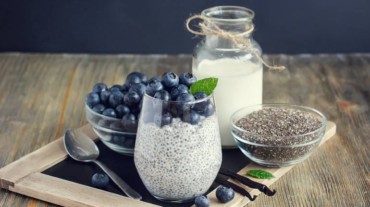
“At the end of the day my most important job is still mom-in-chief” – Michelle Obama
These words from the former First Lady of the United States of America are enough to stress the role of a mother in a family. Mothers have always been that crucial piece of a jigsaw called ‘family’, without which the puzzle is not complete.
Moreover, in the current world scenario, the task at hand for mothers is even more challenging–given the multiple responsibilities that she has to juggle between family and work.
One cannot stress enough on the importance of mothers in our lives. However, do we really acknowledge them enough? You might argue that the world has been celebrating Mother’s Day every year for over a century now, but given the magnitude of their contribution to our lives, does it warrant just one isolated day of celebration? Definitely not!
A responsibility like motherhood with incredible sacrifices demands lavish appreciation and celebration every day because this is the only thing that keeps her going in her herculean task.
So this Mother’s Day, let us do away with our lack of expression. Let us remind our mothers that this is the time to take a pause, a time to unwind and take control of their lives to be their best version physically, mentally and emotionally.
This is how can help your mom take better care of herself
A good place to begin is by encouraging our mothers to exercise regularly. Although a mother’s duties entail a fair amount of physical activity, a proper fitness regime will ensure an overall sense of well-being and happiness. It also helps relieve stress, improves mood, reduces dissatisfaction with life and keeps you happy.

Exercising is important, but it is equally important to back it up with a nourishing well-balanced diet. Following a fitness regime and good dietary practices are like two sides of the same coin. Often, mothers tend to neglect their own dietary needs as they tend to put their families before themselves or consume a diet which is nutritionally inadequate.
A balanced diet is one, which provides all the nutrients in the required amounts and proper proportions. In addition to providing macro and micronutrients, a balanced diet should also provide dietary fibre, antioxidants and phytochemicals, which bestow positive health benefits.
Antioxidants such as vitamins C and E, beta-carotene, riboflavin and selenium protect the human body. Other phytochemicals such as polyphenols, flavones, found in fruits, vegetables, grains and other plant foods offer protection to the body from oxidative damage, which is associated with the risk of many chronic diseases like cardiovascular disease, diabetes, cancer etc.
Research has shown that that intake of vegetables and fruits is known to be inversely associated with the risk of many chronic diseases, and antioxidant phytochemicals in vegetables and fruits are considered to be responsible for these health benefits. Spices like turmeric, ginger, garlic, cumin and cloves are also rich in antioxidants.
Select Topics of your interest and let us customize your feed.
PERSONALISE NOW
Balancing her diet with nutrients is the key
Start the day with balancing your breakfast. A balanced breakfast must be a mix of carbohydrates, fibre, protein, vitamins, and minerals. These can be found in many foods and you can pick grains, fruits/vegetables, and dairy for breakfast.

A bowl of ready-to-eat breakfast cereal made with whole grain; a glass of milk or a bowl of yoghurt and sliced fruits or dry fruits or nuts work just as well. Other examples would be wholegrain bread sandwiches loaded with vegetables along with a glass of milk; two vegetable idlis with sambar along with buttermilk and a fruit.
Ready-to-eat cereals are a quick and convenient breakfast option, which are also enriched with key essential vitamins like vitamin C, B complex vitamins and minerals like iron and calcium. Ensure that your other meals of the day are balanced too to provide you with the nutrients throughout the day.
This Mother’s Day, let us ensure that our mothers nourish themselves physically and mentally. Happy Mother’s Day!